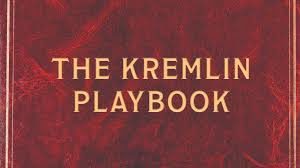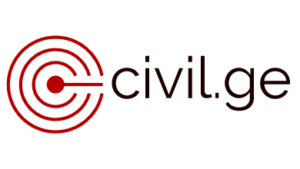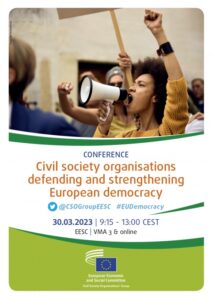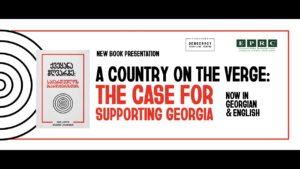“We’ve seen this film before and it doesn’t end well” was the slogan on one placard as protesters in Georgia held more demonstrations over a ‘Kremlin-inspired’ law requiring externally-funded NGOs to register as foreign agents.
Although Georgia’s government enjoys a comfortable majority in Parliament, the country’s nongovernmental organization sector and many major news media outlets side with the opposition, The New York Times reports. The draft law on “foreign influence” is widely seen by them as an attempt to replicate similar Russian legislation to exert pressure on the country’s vibrant civil society.

CSIS
Which is why observers say Georgia’s government is ‘borrowing a page from the Kremlin playbook’.
Thomas de Waal, a senior fellow at Carnegie Europe, said that both the bill and crackdown represented a serious challenge in the politically turbulent country. “It’s a big moment for Georgia, still a democracy, but definitely a struggling one,” he said on Twitter.
On March 7, the Parliament of Georgia passed the Law on Transparency of Foreign Funding, forcing media outlets like ours to register as “foreign agents,” Civil Georgia reports. The law will also impose administrative and financial constraints, which may force us to reduce operations or close:
 CG has been operating since 2001. Generous funding from our donors at various times: the U.S. Embassy, Swiss Embassy, German Embassy, Czech Embassy, Open Society Georgia Foundation, and, most recently, the National Endowment for Democracy (NED) allowed us to function freely and serve millions of users, as the free repository of knowledge about Georgia.
CG has been operating since 2001. Generous funding from our donors at various times: the U.S. Embassy, Swiss Embassy, German Embassy, Czech Embassy, Open Society Georgia Foundation, and, most recently, the National Endowment for Democracy (NED) allowed us to function freely and serve millions of users, as the free repository of knowledge about Georgia.
Concern is growing that the mountainous Caucasus republic, which aspires to join the European Union and NATO, is taking an authoritarian turn, Le Monde adds.
But despite the fear of war, support for EU and NATO membership is steadily rising — 81%, as indicated in National Democratic Institute polls, DW adds. EU and NATO membership is seen as the top priority for Georgians given the country’s complicated history with Russia, which occupied 20% of its territory in the 2008 war.
 On 30 March 2023, the Civil Society Organisations’ Group of the European Economic and Social Committee (EESC) will hold a hybrid conference on the topic of ‘Civil society organisations defending and strengthening European democracy’.
On 30 March 2023, the Civil Society Organisations’ Group of the European Economic and Social Committee (EESC) will hold a hybrid conference on the topic of ‘Civil society organisations defending and strengthening European democracy’.
Unpacking Georgia’s “Foreign Agent” Bill: What Comes Next?
Georgia’s “foreign agent” bill threatens to stigmatize and marginalize journalists and civil society organizations critical of the country’s rulers, says the Center for European Policy Analysis (CEPA – above). March 9, 2023 at 10:00 am to 11:00 am.
Speakers:
Nino Evgenidze, Executive Director, Economic Policy Research Center
Julie George, Associate Professor of Political Science, Queens College and the Graduate Center, The City University of New York
 Eka Gigauri, Executive Director, Transparency International Georgia
Eka Gigauri, Executive Director, Transparency International Georgia
Shota Gvineria, Nonresident Fellow, Economic Policy Research Center; Lecturer, Baltic Defence College
Moderated by:
Kurt Volker, Distinguished Fellow, Center for European Policy Analysis
Even bigger protests this evening in Tbilisi against the “foreign agents” law – a flurry of Georgian+ EU flags in the crowd https://t.co/684nWuCWGf
— Sasha Stone (@SashaNStone) March 8, 2023







